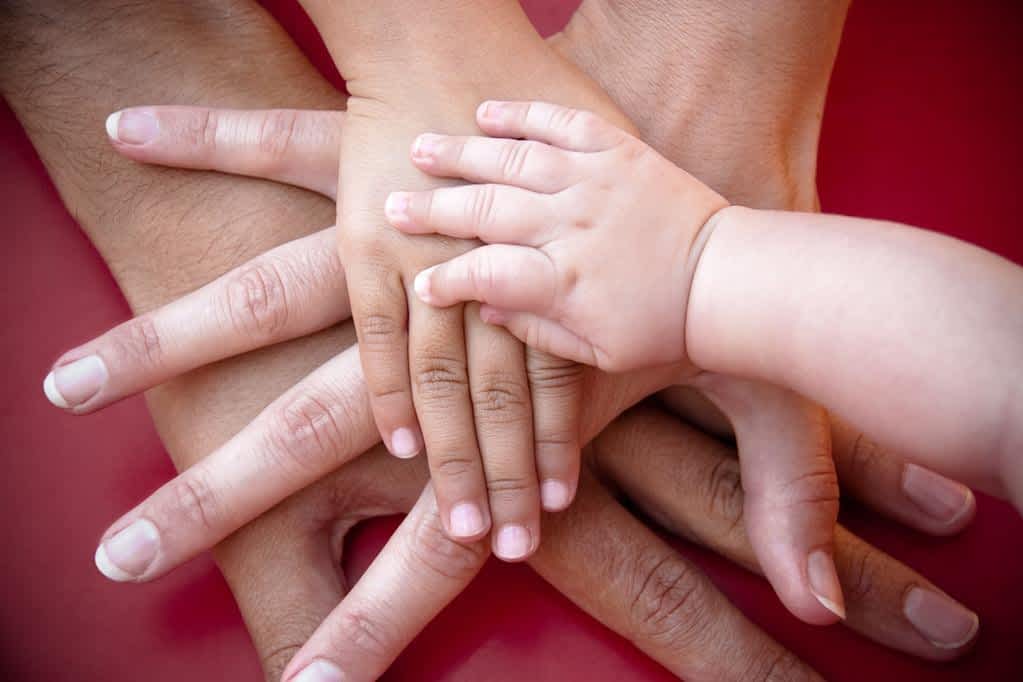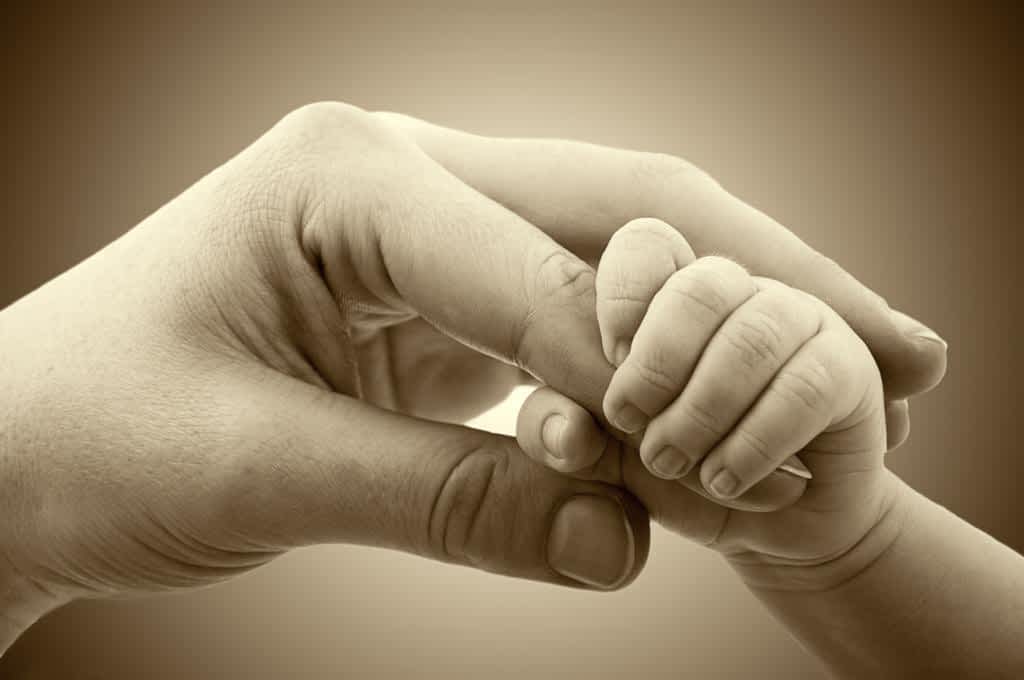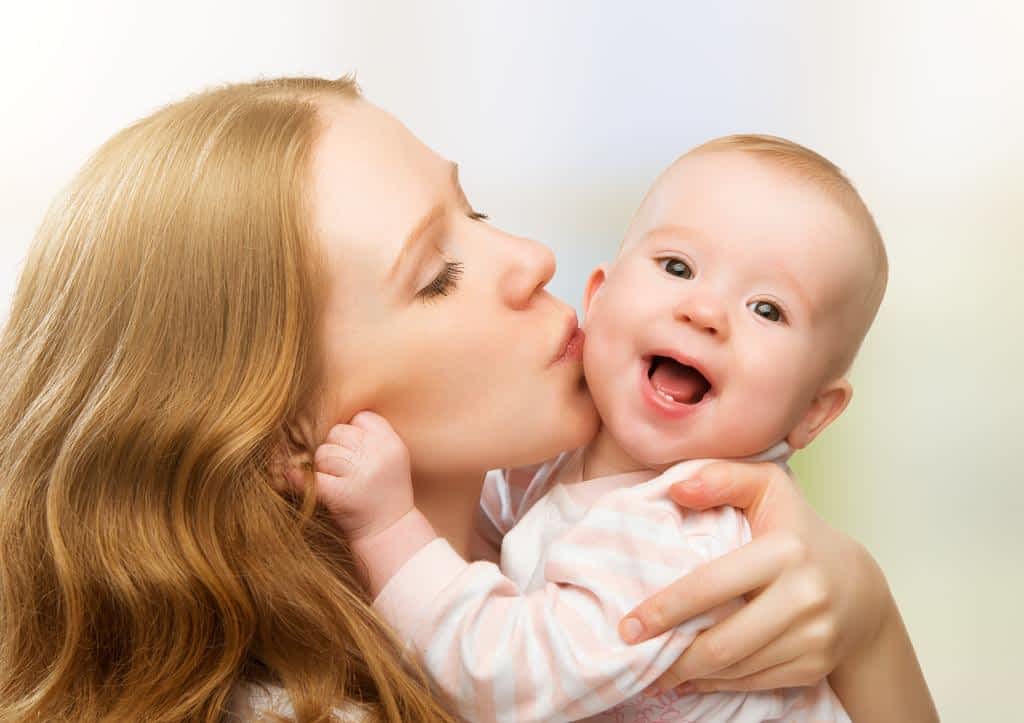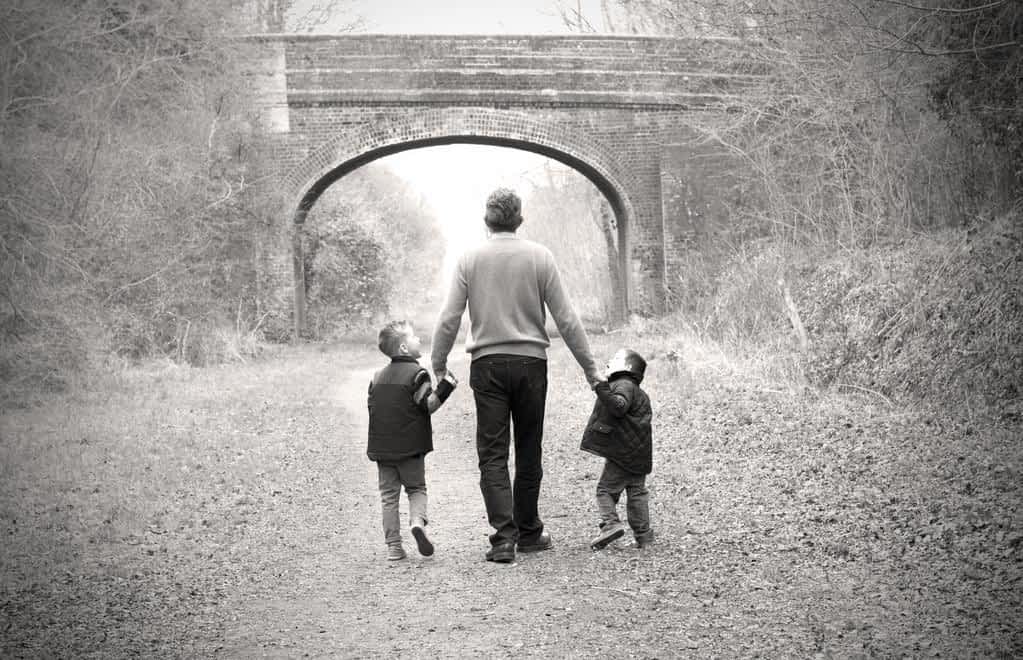Parental Emotional Enmeshment Trauma: 7 Reasons Why Children Should Never Be Born With Jobs
A friend once told me that kids should never come into this world with jobs. I was young, and at the time, I wasn’t sure what she meant by that.
Being drafted into an unpaid, full-time job as your parent’s emotional crutch isn’t some noble rite of passage – it’s a raw deal. The roles we’re shoved into thanks to parental emotional enmeshment trauma can feel like a twisted sentence, where you’re forced to sacrifice your own identity to prop up someone else’s fragile ego.
No kid deserves to be erased under the weight of emotional parentification or to haul around a childhood emotional burden just because an adult refuses to heal their own baggage. And yet, here comes the chorus telling you to “forgive” or “fix” the mess you didn’t make. It’s maddening to think that you’re in therapy because of the very people who should be working on themselves.
Where’s the logic in that??
If you’re tired of carrying the fallout, it’s time to start healing emotional enmeshment and finally give yourself permission to step out of the role you never signed up for.

💡Key Highlights:
- The hidden impact of parental emotional enmeshment trauma on identity and self-worth.
- Why emotional boundaries are essential for a child’s healthy development.
- The connection between childhood roles and lifelong struggles with trust and relationships.
- Surprising links between enmeshment and common emotional disorders.
- How reclaiming autonomy can break the cycle of enmeshment trauma.

What is Parental Emotional Enmeshment Trauma
Emotional enmeshment usually occurs when boundaries between people (usually a child and parent – however it happens in intimate relationships, as well) are blurred, often leaving children in charge of emotional responsibilities that are not theirs to bear.
Parental emotional enmeshment robs children of their innocence and identity, as they are forced to take on roles to meet the emotional needs of the adults in their lives.

7 Effects of Parental Emotional Enmeshment on Children
🚩1. C-PTSD: The Lingering Impact of Early Trauma
Kids stuck in parental emotional enmeshment trauma don’t just “grow out of it.” A lot of them end up struggling with complex post-traumatic stress disorder (C-PTSD) because they spent years drowning in emotional stress with no escape hatch.
When you’re enmeshed, you live on high alert 24/7, scanning the room like a tiny detective, trying to guess what the adults need before they implode. You learn fast that missing a cue, or daring to have your own feelings, can trigger guilt trips, rage, or icy silence.
Over time, all that hyper-vigilance rewires your brain. It messes with your ability to trust people, regulate your emotions, or ever feel truly safe. You start believing that your entire worth hinges on keeping everyone else happy.
The good news is you can unlearn this. Trauma-focused therapy like EMDR, somatic experiencing, or any approach that doesn’t shame you for being human can help you heal emotional enmeshment and finally separate your identity from the chaos you survived.

🚩2. Emotional Avoidance and Fear of Intimacy
Trauma enmeshment often leaves children emotionally avoidant as adults. When a child grows up constantly tangled up in the emotions of others, they may develop a fear of engulfment – the feeling that intimacy will lead to losing their sense of self.
At the same time, they may fear abandonment, creating a paradoxical struggle: craving the connection a relationship brings, but avoiding vulnerability.
Breaking this cycle requires learning to set and respect emotional boundaries. The key is in realizing that intimacy does not have to mean sacrificing individuality.

🚩3. Codependency and People-Pleasing Tendencies
One of the biggest red flags of emotional parentification is good old-fashioned codependency. When you grow up in this kind of environment, you learn early that your value hinges on how well you keep everyone else comfortable. You end up believing that your needs don’t matter, or worse, that they’re selfish.
Fast forward to adulthood, and you’re stuck in the same exhausting loop: people-pleasing on autopilot, bending over backward for everyone, and ignoring your own well-being until you burn out.
If this sounds familiar, you’re not doomed to live as a doormat forever. You can unlearn the lie that your worth depends on how much you sacrifice. Start by building self-worth in ways that don’t revolve around caretaking—think hobbies that light you up, small wins you earn for yourself, and regular self-care that isn’t negotiable.
Bit by bit, you’ll reclaim your autonomy and prove to yourself that you’re allowed to exist for more than just meeting someone else’s needs.

🚩4. Impostor Syndrome and Perfectionism
Kids tangled up in parental entanglement often grow up convinced they’re never good enough, no matter what they do. This relentless sense of inadequacy usually morphs into impostor syndrome later on. You start to believe you’re just faking competence, and any minute now, someone’s going to pull back the curtain and expose you as a total fraud.
It’s not exactly surprising. Enmeshment breeds deep shame around being imperfect. You learn to measure your worth by impossible standards and end up with an inner critic that never shuts up.
You can challenge this garbage narrative. Tackling impostor syndrome starts with noticing those nasty thought patterns and refusing to take them at face value. Cognitive-behavioral therapy (CBT) can be a huge help in sorting this out. It helps you reframe your self-perception, recognize your real accomplishments, and let go of the guilt that doesn’t belong to you.

🚩5. Addictions and Coping Mechanisms
Plenty of adults who grew up with parental emotional enmeshment trauma end up reaching for anything – booze, gambling, compulsive shopping, to quiet the chaos in their heads. Addiction becomes the quick-fix escape from all that guilt, shame, and the gnawing feeling of never measuring up.
Sure, these habits offer temporary relief. But the price is steep, and the pain always comes back louder. Because the truth is, you can’t outrun the emotional wreckage of childhood by numbing it away.
Real recovery means digging into the root of why you feel so unworthy in the first place. It’s not just about detoxing or white-knuckling your way through cravings. It’s about facing the old wounds head-on like the relentless childhood emotional burden you carried and the belief that your needs don’t matter.
Therapy that addresses trauma, whether it’s CBT, EMDR, or another approach helps you break the cycle for good.

🚩6. Eating Disorders and Body Image Issues
When you grow up stuck in emotional parentification with an emotionally unstable caregiver, it’s no wonder you start looking for any crumb of control you can get. For a lot of kids, that control shows up in the form of eating disorders.
Food becomes a battlefield. It’s either comfort when everything feels like too much, or a form of self-punishment when you believe you don’t deserve to take up space. Pretty soon, you’re locked in an exhausting war with your own body.
Healing doesn’t happen by just slapping a meal plan on top of all that hurt. To truly recover, you have to tackle the shame and helplessness that drove you there in the first place. When you start addressing those buried feelings, and unlearning the toxic belief that your worth is tied to other people’s chaos, you can finally begin to build a healthier, kinder relationship with your body.

🚩7. Inadequate Feelings of Shame and Guilt
Probably the most sneaky, soul-crushing part of this childhood emotional burden put on by parents is the tidal wave of shame and guilt it dumps on kids. When you grow up enmeshed, you don’t just think you’ve messed up; you believe you are fundamentally broken. You end up blaming yourself for every meltdown, mood swing, and disaster happening around you, like it’s your personal failing to keep everyone happy.
This toxic shame warps your thinking. You start seeing yourself in extremes: either totally good if you meet everyone’s demands, or absolutely worthless if you fall short. There’s no in-between, no room to be human.
Undoing this kind of deep-rooted self-loathing isn’t a quick fix, but it’s possible. It starts with self-compassion – that thing you were never taught to give yourself. Mindfulness, self-affirmations, and daily reminders that you don’t have to earn your right to exist can slowly rewire your brain to choose acceptance over shame.
Therapy that focuses on inner child work can also be a life-changing. It helps you reconnect with the kid you used to be – the one who deserved love and validation without having to become everyone’s emotional caretaker.

The Broader Impacts of Emotional Trauma Enmeshment
Parental emotional enmeshment trauma doesn’t just saddle you with guilt and shame – it can set the stage for personality disorders, obsessive-compulsive behaviors, and a lifelong inability to trust your own judgment.
When you spend your entire childhood scanning the room to figure out how everyone else feels, you never learn how you feel, or what you even want. You end up constantly second-guessing every choice, convinced you’re one wrong move away from ruining everything.
It’s draining and emotionally exhausting. You feel fundamentally unsafe in your own skin, always questioning your decisions and doubting your worth. The pressure to keep everyone else’s emotions in check leaves zero space for self-discovery, never mind personal growth.

How to Break Free from Emotional Parentification
Breaking free from this childhood emotional burden isn’t exactly a walk in the park, but it’s one of the most rewarding things you’ll ever do for yourself. Here are some steps to help you start untangling the mess:
✔️ Call It What It Is
The first step is admitting that, yes, this was emotional enmeshment. Reflect on the old dynamics and get honest about how they’re still running the show in your life. Awareness is the foundation for change.
✔️ Draw the Line
Healthy boundaries aren’t selfish – they’re necessary. Practice saying no without apologizing and start prioritizing your own needs, even if it feels awkward or scary at first.
✔️ Get Professional Backup
Therapy gives you a safe place to unpack the guilt, shame, and confusion. A good therapist can help you build healthier coping strategies so you’re not stuck on autopilot, catering to everyone else.
✔️ Take Care of Yourself (Really)
Self-care isn’t just bubble baths (though those are great). Move your body, journal out the chaos, meditate… do whatever helps you feel grounded and connected to yourself.
✔️ Challenge the Garbage Beliefs
Enmeshment teaches you to believe you’re broken. You’re not. Start noticing those negative thought patterns and call them out. Replace them with affirmations and self-talk that actually support you.
✔️ Find Your People
Surround yourself with folks who respect your boundaries, cheer you on, and don’t expect you to be their emotional janitor. Healthy relationships make all the difference.
✔️ Rediscover Yourself
Who are you when you’re not managing everyone else’s feelings? Explore hobbies, interests, and goals that light you up. Reclaim the parts of yourself that got buried under everyone else’s expectations.

Wrapping Up the Childhood Emotional Burden of Parental Entanglement
Parental emotional enmeshment trauma isn’t rare, it’s a brutal reality that scars kids forced to carry emotional loads way too heavy for their age. No kid signed up for that job, and guess what? It’s never too late to ditch those roles and rewrite the script.
Whether you were the oldest sibling, the baby of the family, or stuck somewhere in the middle, lugging around everyone else’s emotional baggage is a raw deal. If you’re out here doing the hard work of nurturing your inner kid and your grown-up self, consider yourself a total badass for showing up and owning your healing journey.❤️

FAQ: Emotional Parentification Enmeshment
1. What is parental emotional enmeshment trauma?
It’s when parents blur boundaries, forcing children to manage their emotions or needs, leaving kids emotionally overwhelmed and unable to develop healthy independence.
2. How does parental emotional enmeshment trauma lead to C-PTSD?
C-PTSD can develop when children endure chronic emotional neglect or manipulation, creating long-term patterns of fear, hypervigilance, and distrust in their relationships and sense of safety.
3. Why do enmeshed children fear both abandonment and engulfment?
Enmeshed kids often feel trapped by excessive parental demands but fear rejection if they assert boundaries, leaving them stuck between conflicting fears of loneliness and loss of autonomy.
4. How does parental emotional enmeshment trauma contribute to codependency?
It conditions children to prioritize others’ needs over their own, cultivating dependency on external validation, and difficulty forming balanced, reciprocal relationships in adulthood.
5. What’s the link between enmeshment and people-pleasing?
Enmeshed kids often feel they must earn love through compliance, leading to a lifelong habit of people-pleasing to avoid conflict or rejection.
6. How does parental emotional enmeshment trauma cause impostor syndrome?
When kids are valued only for meeting adult expectations, they internalize doubt about their worth, leading to persistent feelings of fraudulence even in their successes.
7. Can enmeshment trauma lead to OCD or other compulsions?
Yes, obsessive behaviors often develop as coping mechanisms to regain control in chaotic environments shaped by parental emotional enmeshment trauma.
8. What’s the connection between enmeshment and black-and-white thinking?
Enmeshed kids often grow up in environments where nuance is dismissed, forcing them into rigid, all-or-nothing thinking as a means of coping with emotional chaos.
9. How does enmeshment trauma influence addictions or eating disorders?
These behaviors often serve as self-soothing mechanisms, helping us manage overwhelming emotions or a lack of self-worth rooted in enmeshed childhood dynamics.
10. Why do enmeshed children feel overwhelmed by shame and guilt?
Parental emotional enmeshment trauma teaches kids to feel responsible for adult emotions, creating deep shame and guilt for perceived failures or imperfections.
11. How does enmeshment affect trust in one’s own thoughts?
Enmeshed children learn to doubt their instincts, as they’re conditioned to prioritize others’ opinions, leading to chronic self-doubt and inability to trust their cognition.
12. Can parental emotional enmeshment trauma cause personality disorders?
In severe cases, enmeshment trauma can contribute to conditions like borderline personality disorder, where identity and emotional regulation are deeply impacted by unhealthy childhood dynamics.
13. Why does enmeshment make people feel fundamentally unsafe?
When childhood boundaries are violated, we often grow up feeling vulnerable and unsupported, creating a pervasive sense of unsafety in the world.
14. How can someone heal from parental emotional enmeshment trauma?
Healing involves therapy, setting firm boundaries, and learning to reconnect with your own needs and feelings without guilt or fear of rejection.
15. Is recovery from enmeshment trauma possible?
Absolutely! With self-awareness, support, and professional help, you can reclaim their autonomy, heal emotional wounds, and build healthier relationships.

Thank you for reading this post, don't forget to subscribe!







